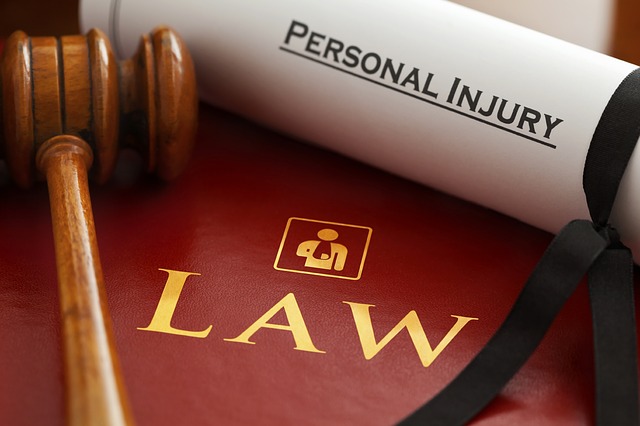Things You Will Learn About Yourself If You Suffer An Injury
For most of us, injuries aren’t that frequent an occurrence. In fact, when we experience one, it can have been so long since we actually had to deal with being injured… we don’t really know how to deal with it.
Perhaps that is why the actual process of being injured, and having to withdraw from our normal life, is such a shocking one– we just don’t have the prior experience to relate it to. When dealing with an injury, many people find themselves discovering a side to themselves that they didn’t know existed, which can lead to some intriguing perspectives on who they are, what they think, and how they regard their health.
If you ever have the misfortune to suffer through an injury, then you’re in for a journey of self-discovery. Here’s a look at a few of the things you might learn…
You will learn… your capacity for boredom
For many of us, life is busy; so busy that we don’t even really recall what it’s like to be bored. There’s always something to distract us; an update from our favorite blog or a social media meltdown to respond to. We’re very rarely left alone with our own thoughts in the modern age.
When you’re dealing with an injury, however, you’ll quickly exhaust all of those distractions. You’ll find yourself facing, perhaps for the first time in decades, real boredom– and you won’t deal with it well.
While healthy, you likely imagined that the idea of suffering an injury which forced you to take time off work and sit in bed (or on the sofa) all day sounded like bliss. Now that you’re actually living it, the grass is greener on the other side, and you’ll find yourself feeling like you’re missing out and being denied the ability to do the things you actually want to do.
You may cope with this well; you’ll learn new hobbies or improve your friendships. Or you may find yourself struggling, and needing to ensure you have a constant supply of entertainment to keep your mind occupied. Either way, you’ll definitely learn more about your personal capacity for dealing with boredom, which may change the way you approach life in future.

You will learn… how you handle injustice
With any luck, injustice is not a subject that you will have had to deal with frequently. When you find yourself dealing with an injury, it’s almost inevitable that you will feel a sense of injustice that niggles in the back of your mind.
While you may only have an injury, and things could have been worse, it’s important to note that it’s completely valid to feel annoyed by the fact you’re having to cope with what you’re going through. Sure, some people have it worse, but to suggest that means you’re unable to feel bad about how you have it is incredibly reductive– after all, the same logic would mean there’s no point in feeling good about something in your life, because other people have it better.
There are various ways you can address your feelings of injustice. If your injury is genuinely the fault of someone else, you may find it beneficial to channel that feeling into contacting the likes of Haffner Law to seek recompense. If there is no direct fault, then it’s still fine to feel a sense of injustice and annoyance at the inconvenience you have experienced– and don’t let anyone tell you differently, or to “think positively”. Your life has changed, you’re dealing with pain, and you have every right to be annoyed.
Many people find that just allowing themselves to be annoyed actually stops them from feeling annoyed. You may find this is the case for you, but if you’re still struggling, consulting a counselor — online options are available if you can’t leave the house — is always a viable choice.
You will learn… a new respect for your healthy self
Most of us go through life just sort of expecting that our bodies will work as they should. We don’t think about how incredibly vital our hands are until we break a finger, or how good it feels to walk without a limp. Those things are just the status quo, so we can’t appreciate them.
However, when you’re dealing with an injury, you’ll suddenly see the other side of the coin. You’ll suddenly have a newfound respect for the not-injured version of your body, and you’ll promise that you’ll never take it for granted again.
You’ll break that promise, though. That’s good news; when you’re back on your feet (or your arm, or your hand…) you will, initially, delight in your return to normal function. Eventually, though, you’ll forget– which at least is a sign that you’re back to normal!
You will learn… how you cope with adversity
We all cope with adverse situations differently and, providing you are not harming anyone, there’s no “right” or “wrong” way to manage. It can be beneficial to know how you cope with difficult situations, however, not least because you can then plan more effectively in the future should something similar befall you again.
It can be helpful to know if you deal well with adversity — being a good patient, taking medication on time, resting when a doctor tells you that you should be resting — or if you don’t cope so well. It can help shape the decisions you make in the future, as well as help to shape any future treatment you have to experience.
In conclusion
Dealing with an injury, and the associated removal from life as you usually know it, is never an easy experience to have to deal with. It’s important to try and take account of your mental and emotional reaction to such an event; physical healing is important, of course, but your processing of going through such a situation is also important. Give yourself a break, pick up the lessons you can, and try to look forward to a brighter future when everything is back to normal.




